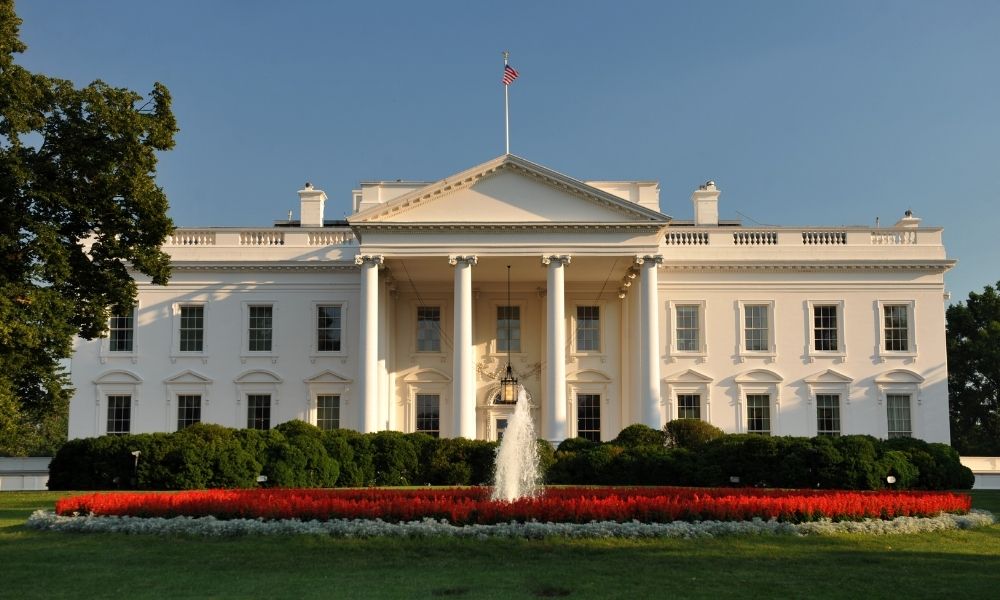Washington: President Donald Trump will impose a staggering 104% tariff across all Chinese imports starting Wednesday. The announcement was made by White House Press Secretary Karoline Leavitt on Tuesday.
The tariffs come on top of the existing ones already set to rise by 34% as part of Trump’s “reciprocal” tariff strategy. After China’s refusal to back down from imposing a retaliatory 34% tariff on U.S. goods, Trump added an extra 50%, bringing the total to 104%.
Rising Tensions
Leavitt confirmed that the 50% increase was a direct response to China’s actions. The administration aims to pressure China to halt its trade policies.
China’s Commerce Ministry responded sharply, calling the additional tariffs “a mistake upon a mistake” and promised to escalate its retaliation on U.S. exports.
Market Reactions
The announcement caused U.S. stock markets to fluctuate. After initial gains, the Nasdaq and S&P 500 dipped into negative territory by the afternoon. However, the Dow Jones remained positive.
Leavitt defended the tariff hikes, accusing China of worsening its mistreatment of American workers. She stated, “Countries like China who retaliate are making a mistake.”
Trump’s Resolve
Leavitt also expressed confidence in Trump’s position, stating that the president has “a spine of steel.” She emphasized Trump’s determination to continue imposing tariffs despite China’s resistance.
“The Chinese want a deal, but they don’t know how to make it happen,” she added. She refused to comment on possible terms Trump might accept to reduce the tariffs.
Tariff Background
Trump initially imposed a 10% tariff on all Chinese imports in February. This was linked to accusations that China contributed to illegal immigration and fentanyl trafficking into the U.S.
The tariffs were then increased in March, doubling the original rate. The move to raise tariffs further is seen as a significant step in Trump’s hardline stance on trade.
Impact on Trade
In 2024, China was the second-largest source of imports to the U.S., with a total value of $439 billion. In return, the U.S. exported $144 billion worth of goods to China.
This trade imbalance is at the heart of the tariff war between the two nations, and the new duties are expected to have a serious economic impact. Industries dependent on Chinese imports are likely to face higher costs, leading to potential job losses.
Retaliation Expected
China’s response to these new tariffs is expected to involve further retaliatory measures. The Chinese government has already stated its intent to escalate duties on U.S. products.
The situation is likely to create a cycle of escalating tariffs that could impact both nations’ economies. While the U.S. economy saw growth earlier this week, continued trade tensions could put that progress at risk.
Trade War Consequences
Experts warn that the ongoing tariff war could strain relations between the two largest economies in the world. Both sides are facing economic challenges, with the possibility of reduced trade volumes and disrupted supply chains.
Trump’s trade policies have been controversial, but the president remains committed to his approach, which he believes will benefit American workers in the long run.
Ongoing Trade Negotiations
Despite the tariffs, discussions between the U.S. and China continue behind the scenes. However, as Leavitt noted, China has yet to offer any concrete proposals to reduce the tariffs.
The U.S. administration remains firm in its stance, signaling that a resolution to the trade dispute may not come quickly.












